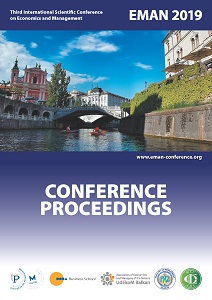ORGANIZACIJSKA S ERGONOMIJA V MANAGEMENTU TURISTIČNIH STORITEV PRI DOSEGANJU PSIHOSOCIALNE DOSTOPNOSTI GOSTA S POSEBNIMI POTREBAMI
ORGANIZATIONAL ERGONOMICS OF HOSPITALITY SERVICE MANAGEMENT TO REACH PSYCHOSOCIAL ACCESSIBILITY FOR GUESTS WITH SPECIAL NEEDS
Author(s): Darija Cvikl
Subject(s): Tourism
Published by: Udruženje ekonomista i menadžera Balkana
Keywords: Accessible tourism; guests with special needs (GPP); psychosocial needs; ergonomics of hospitality services;
Summary/Abstract: The subject research represents an innovative approach to the organizational ergonomics of hospitality services in tourism management. It also helps to create added value in achieving the satisfaction of guests with special needs, in particular with the study of specific skills needed to work with guests with special needs. This article points to the fact that guest satisfaction as the highest value in the tourism industry is treated very selectively, since the sector does not provide psychosocial accessibility for guests with special needs, but the entire sector tries to satisfy only guests without special needs. The purpose of the conducted study is to inform and encourage employees in hospitality establishments to communicate with guests with special needs and overcome basic communication obstacles, as mandated by the ethical code of the WTO (1999), Article 7, which advocates the equal right to tourism for all, including persons with special needs. The contribution to the profession is primarily that it offers well-founded and relevant professional recommendations to the management of hospitality and tourism services for the care of guests with special needs and the elimination of communication barriers that otherwise lead to problems, embarrassments and unpleasant situations. To date, far too little research has been done on the subject of psychosocial accessibility and satisfaction of guests with special needs within accessible tourism. Apart from physical and economic accessibility and access to information, psychosocial accessibility is the least developed area of accessible tourism, which needs to be thoroughly researched. The methodology of the work was carried out in such a way that a questionnaire was created to obtain feedback from guests with special needs. The segment of invited guests, tourist and hospitality workers, who, with glasses that simulate blindness, were placed in the role of a blind and partially sighted guest during the educational training. In the theoretical part with findings in the literature, meanwhile, the practical part based on the observation method included an educational training, in which thirty-one (31) professional workers from hotel and tourism organizations, with many years of experience in security, reception, kitchen, housekeeping, etc., assumed the role of a blind but partially sighted guest who was served a three-course dinner. The interpretation of the service was accompanied at every step by the expert commentary of a therapist working with blind and partially sighted guests. Also, at the end of the performance part, the participants of the event distributed a handbook or brochure for dealing with blind and partially sighted guests in tourism and hospitality. The analysis of the results of the feedback showed that the need for training of tourist and hospitality staff to work with guests with special needs is extremely strong and that specifics when communicating with a guest with special needs are real and extremely important if we want to serve such a guest with quality. In the final part of the contribution, recommendations for further work are given.
Book: EMAN 2019 / 3 – Economics & Management: How to Cope with Disrupted Times - CONFERENCE PROCEEDINGS
- Page Range: 539-545
- Page Count: 7
- Publication Year: 2019
- Language: Slovenian
- Content File-PDF

